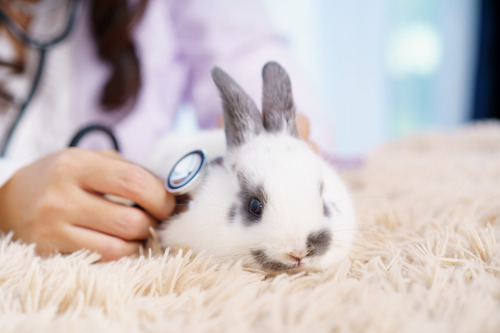Owning an exotic animal is an exciting experience, but it also comes with unique responsibilities. Unlike common pets, exotic animals—ranging from reptiles and birds to small mammals—have specialized health needs that often go unnoticed by owners. These animals require regular veterinary care to help ensure they live healthy, happy lives. If you’re a pet owner in Colorado Springs, Cheyenne Mountain Animal Hospital offers professional care tailored to the specific needs of exotic pets. Here, we’ll explore nine essential reasons why regular check-ups with an exotic animal vet are crucial for your unique pet’s health and well-being. If it’s time for your pet’s next appointment, call us at (719) 475-1314 or book an appointment online today!
1. Preventative Health Care for Exotic Pets
Just like cats and dogs, exotic pets benefit greatly from preventive health care. Many exotic species are highly skilled at hiding illness—a survival instinct that can make it difficult for owners to recognize early signs of health problems. Regular visits to an exotic animal vet help catch these issues before they become serious, often improving your pet’s overall quality of life.
During a wellness exam, your vet will evaluate your exotic pet’s physical condition, check for parasites, and assess dietary and environmental factors that may affect health. Preventive care is especially valuable for exotic animals, as it provides the vet with a baseline for your pet’s health and enables them to detect subtle changes in future visits.
2. Exotic Animal Vets Understand Specialized Nutrition Needs
Exotic animals have unique dietary needs, and improper nutrition is a leading cause of health problems among them. Birds, reptiles, and small mammals each require specific nutrients, vitamins, and minerals that might not be met with a generic diet. A visit to an exotic animal vet at Cheyenne Mountain Animal Hospital will help ensure your pet is receiving balanced nutrition tailored to their species.
Your exotic vet can provide guidance on diet choices that support healthy weight, energy levels, and immune system function. Additionally, they may suggest supplements if your pet requires specific nutrients. Nutrition counseling can prevent conditions like obesity, metabolic bone disease, and vitamin deficiencies, which are common in exotic pets when their dietary needs aren’t met.
3. Monitoring Growth and Development in Young Exotic Animals
Young reptiles, birds, and mammals may grow quickly, and any abnormalities in this period can indicate underlying health issues. Regular veterinary exams help track your pet’s growth, weight, and development, ensuring that they’re on a healthy path. Our exotic animal vet will assess bone growth, body condition, and other health indicators. We can also give you insights into your pet’s specific developmental stages, providing you with recommendations on habitat modifications and dietary adjustments as they mature. This proactive approach is especially important for owners who are new to exotic pet care.
4. Behavioral Consultation for Exotic Animals
Exotic pets often display behaviors that may seem unusual or problematic to their owners, such as excessive vocalization in birds or aggression in reptiles. However, many behaviors have underlying health, environmental, or social causes that a specialized vet can help address. Consulting with an exotic animal vet for behavioral concerns allows you to better understand your pet’s natural instincts and needs.
Your vet can provide strategies to modify behavior through environmental enrichment, diet adjustments, and routine changes. In some cases, a behavior could be a symptom of a health issue, so a thorough veterinary exam is essential to rule out medical causes. Addressing behavior helps your pet feel secure and engaged in their environment, leading to a happier life.
5. Vaccination and Parasite Control
Certain exotic animals, including ferrets and some species of birds, may benefit from vaccinations as part of their preventive health care plan. Additionally, parasites like mites, ticks, and intestinal worms can affect a variety of exotic species. Regular visits to an exotic vet allow for the safe administration of vaccines and parasite control measures tailored to your pet’s needs.
Parasites can cause a range of health issues, from skin irritation to life-threatening infections, so proactive control is essential. Your vet will recommend an appropriate schedule for parasite screenings and provide options for safe treatments. Parasite control also minimizes risks to other pets in your household, ensuring a healthy environment for all animals.
6. Identifying Respiratory Issues Early
Symptoms like sneezing, discharge, and labored breathing can be signs of an underlying condition that requires prompt veterinary attention. Exotic vets are experienced in identifying respiratory issues early, preventing them from escalating. In exotic animals, respiratory infections can be caused by improper humidity, poor ventilation, or diet. During a veterinary visit, your vet will examine your pet’s respiratory function and recommend changes in habitat conditions, if necessary. Early intervention helps prevent severe respiratory conditions and reduces the need for more invasive treatments.
7. Habitat and Environmental Assessment
The environment where your exotic pet lives significantly impacts their health and well-being. Exotic animal vets understand the specific habitat requirements of different species and can advise you on modifications that support your pet’s health. Improper temperatures, humidity, lighting, or substrates can cause health problems, from skin issues to metabolic disorders.
During a veterinary exam, your vet may inquire about your pet’s enclosure setup, including lighting, temperature, and cleanliness. They’ll guide you in creating an optimal environment that mimics their natural habitat, helping prevent stress and associated health issues.
Temperature and Humidity Control
Certain species, such as reptiles and amphibians, have precise temperature and humidity requirements. An exotic animal vet can help you determine the correct levels and advise you on equipment, such as thermometers and hygrometers, to maintain a stable environment.
Lighting Needs for Health
Many reptiles and birds require specific UV lighting to absorb calcium and other nutrients properly. Your vet can explain the best options for UVB lighting, ensuring your pet receives adequate exposure to support bone health and prevent metabolic disorders.
8. Exotic Animal Vets Offer Emergency Care
Emergency situations like trauma, ingestion of foreign objects, and sudden changes in behavior need a quick response. Exotic vets are trained to handle these emergencies and understand the unique needs of different exotic species, ensuring your pet receives safe and effective care. Knowing your exotic animal vet offers emergency care can give you peace of mind if unexpected issues arise. If you’re concerned about your exotic pet’s health, it’s best to contact a qualified vet immediately to address the situation appropriately.
9. Specialized Dental Care for Exotic Pets
Many exotic animals, such as rabbits, guinea pigs, and some reptiles, have specialized dental needs that differ greatly from those of dogs and cats. Regular dental exams with an exotic animal vet help catch dental issues early, preventing pain and complications. Exotic pets may suffer from dental problems like overgrown teeth, infections, or abscesses, which can lead to difficulties in eating and overall health decline. Your vet will check your pet’s teeth for alignment, wear, and any signs of decay or infection. They’ll also advise you on diet adjustments that promote dental health. Ensuring your pet receives proper dental care supports their eating habits, energy levels, and quality of life.
Partnering with a Qualified Exotic Animal Vet in Colorado Springs
Caring for an exotic animal requires a partnership with a qualified vet who understands their unique needs. From nutrition and behavioral insights to emergency care and environmental recommendations, an exotic animal vet is your best resource for ensuring your pet’s health and happiness. At Cheyenne Mountain Animal Hospital in Colorado Springs, we offer comprehensive care tailored specifically for exotic animals. Call us today at (719) 475-1314 or book an appointment online to give your pet the professional attention they deserve. Your pet’s well-being is our priority, and we’re here to support you in every aspect of their health journey.





